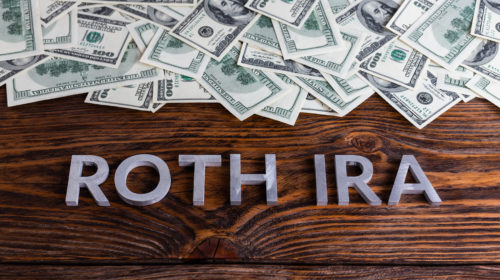Is it Time to Convert to a Roth IRA?

Roth IRAs are tax-favored accounts to which qualified taxpayers can make after-tax contributions. Contributions to the account can grow tax-free, and neither the contributions nor the earnings on them are subject to tax when a Roth IRA owner receives a qualified distribution from the account. Although a Roth IRA is designed to help a taxpayer save for retirement, it is inaccurate to characterize a Roth IRA as just a retirement savings vehicle. A Roth IRA can offer tax, estate planning, and financial planning advantages that are not available with respect to a traditional IRA.
A conversion from a traditional IRA to a Roth IRA can be made without regard to your income or filing status for tax years beginning after December 31, 2009.
Why is it a good time to convert to a Roth IRA?
Taxes are triggered when you make a Roth conversion. Assets or money that you shift from a traditional IRA into a Roth become taxable. It’s as if you took it out in a plain withdrawal, without putting it back into a Roth IRA. Declines in market values due to the COVID-19 pandemic mean the income tax that you’d pay on any traditional IRA (all of it or part of it) that you convert to a Roth IRA is much lower now than it would have been before the onset of the coronavirus stock market correction.
Why would I convert to a Roth IRA?
If converting from a traditional IRA to a Roth IRA means a larger tax bill, why would you convert now? One of the biggest reasons is that once you’ve held a Roth IRA account for 5 years and reach 59 ½, all withdrawals from your account are tax free forever. They are also not subject to required minimum distributions during your lifetime.
There are several other valid reasons why you may want to take advantage of the opportunity to convert to a Roth IRA. These include a devaluation of your IRA investments, offsetting any current year net operating losses, estate planning, or one of the more timely reasons, hedging against future tax rate increases. In the wake of the government spending due to the COVID-19 pandemic and the likelihood of tax increases to replenish the government coffers, we might currently be experiencing the lowest tax rates that will occur for some time.
Where do I start?
The following key factors generally need to be identified and addressed in order to best analyze a Roth IRA conversion:
- Asset mix (i.e., qualified versus nonqualified, liquid versus illiquid)
- Traditional IRA fair market value
- Time horizon
- Current and future cash flow needs
- Current marginal tax rate versus projected future marginal tax rate
- The ability to pay the income tax on a conversion with nonqualified funds
- Estate planning objectives
Whether a traditional IRA should be converted to a Roth IRA is a complex issue. Haefele Flanagan can help guide you through the process to make the best choice for your financial needs. Please contact a team member to discuss the conversion strategies available to maximize your tax benefits.